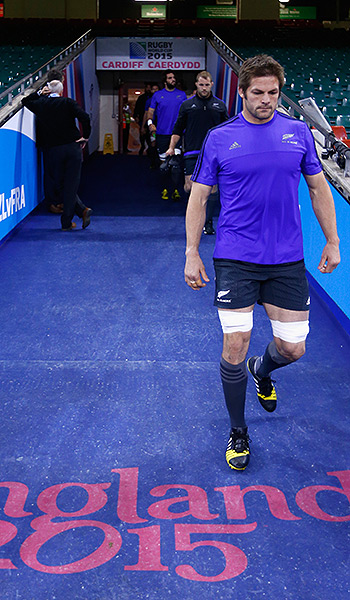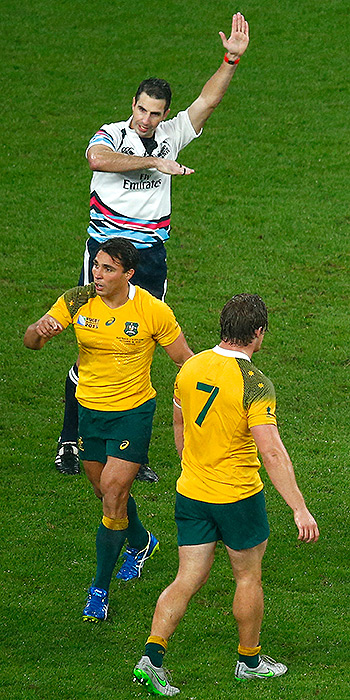Law discussion: Chuck out exceptions
In a top match Richie McCaw was penalised by a top referee, the one who had refereed the previous World Cup.
Afterwards McCaw acknowledged his guilt till the referee said that he (the referee) had been wrong and what McCaw had done was not an infringement.
There is some thing wrong when the player who has played more Tests than anybody else does not know that it was not wrong and the top referee in the world does not know that it was not wrong.
Then there is a need for simplification and getting rid of the exceptions would go some way to along a road to simplification.
This is the time, after a World Cup, when lawmakers can make merry. Perhaps a gift to rugby would be simplification.
The laws of rugby seem to gather extras like a rolling snowball. It may well be a worthwhile exerceise to deconstruct the snowball.
Take a caught kick. Here are possibilities.
You kick,
I catch.
I am immediately tackled to the ground and the ball becomes unplayable.
Your ball.
You kick.
I catch.
I am immediately grabbed and a maul forms. It falls to ground and the ball becomes unplayable.
My ball.
You kick off.
I catch.
I am immediately grabbed and a maul forms. It falls to ground and the ball becomes unplayable.
Your ball.
There is even more to it.
But why there should be any exception in the case of a cught kick is not clear and obvious.
Take the tackle.
After a tackle, players who go to play the ball are to enter from behind the ball and behind the tackle – 'through the gate'. Except for the tackler who can play from any direction.
The except, while it has merits in rewarding the player who beat the attacker, it is confusing. Also confusing is the tolerance shown at entry for the tackled player's team-mates.
Also confusing is the penalty against players who go to ground. Sometimes they are penalised, often they are not. Would it not be easier to say that only players on their feet are allowed to play and that all players off their feet must get away or get penalised.
There is more tackle confusion if a player is held and he and others stay on their feet but if he drops a knee to the ground opponents are penalised for not releasing him in a completed tackle – even though they may have no knowledge of the 'completion of the tackle'.
Then there is the ruck. If I have my hands on the ball before the ruck is formed I am allowed to keep them on the ball after the ruck has been formed but if the ruck forms and I then put my hands on the ball, I am penalised. The difference could be a split second before I am 'beaten by the ruck'.
It may be simpler if players on their feet were allowed to contest the ball with their hands.
Hands in the scrum has almost completely gone, why not hands in the ruck – which is allowed if you are a scrumhalf?
Then there is obstruction and offside at a knock-on, which are penalised even though there may be clearly no intention to obstruct or be offside. The one may be a matter of timing and the other an accident of place. Surely a scrum for accidental offside is more suitable. It's different if there is intent and referees are expected to divine intent as at the deliberate knock-on. Surely they could do so in these two cases as well.
There are other things we could dredge up but this is enough to go on with at present.
The law-makers' motto could well become Treat alike what looks alike.
By Paul Dobson
@rugby365com



















































